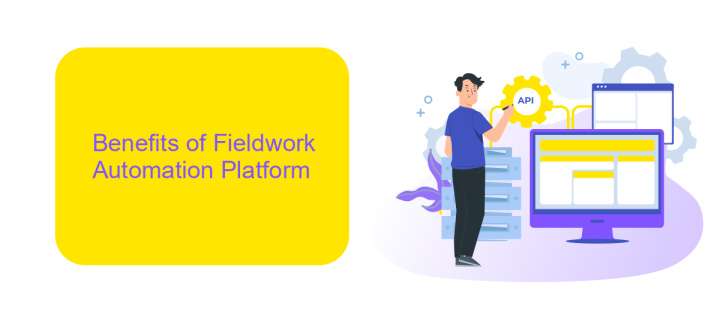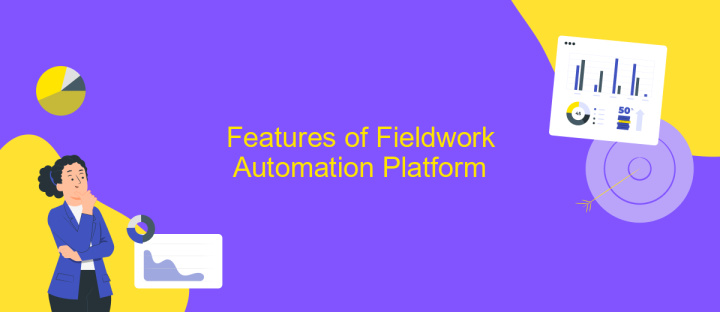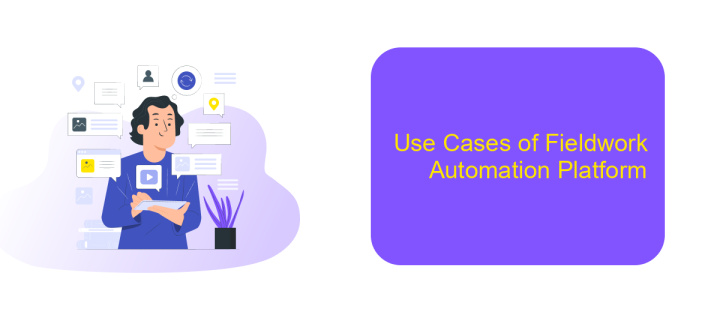Fieldwork Automation Platform
In today's fast-paced business environment, the need for efficient and streamlined field operations is more critical than ever. A Fieldwork Automation Platform offers innovative solutions to enhance productivity, reduce manual errors, and optimize resource management. By leveraging cutting-edge technology, these platforms empower organizations to automate routine tasks, enabling field teams to focus on strategic initiatives and deliver superior service to clients.
Introduction
In today's fast-paced business environment, the need for efficient and streamlined operations is more critical than ever. Fieldwork Automation Platforms (FAPs) have emerged as essential tools for organizations aiming to enhance productivity, reduce operational costs, and improve service delivery. These platforms integrate advanced technologies to automate routine tasks, enabling field workers to focus on more strategic and value-added activities. By leveraging FAPs, companies can achieve greater accuracy, real-time data access, and improved decision-making capabilities.
- Enhanced productivity through the automation of repetitive tasks.
- Real-time data collection and analysis for informed decision-making.
- Improved communication and collaboration among field teams.
- Reduction in operational costs and increased efficiency.
- Scalability to adapt to growing business needs.
The adoption of Fieldwork Automation Platforms is transforming the way organizations manage their field operations. By providing a centralized system for task management, data collection, and communication, these platforms help businesses stay competitive in an increasingly digital world. As technology continues to evolve, FAPs will play an even more vital role in driving operational excellence and fostering innovation across various industries.
Benefits of Fieldwork Automation Platform

Implementing a Fieldwork Automation Platform can significantly enhance operational efficiency by streamlining routine tasks and reducing manual errors. This technology allows field workers to focus on more critical activities by automating scheduling, data entry, and report generation. With real-time data access, teams can make informed decisions quickly, leading to improved service delivery and customer satisfaction. Additionally, automation reduces the administrative burden on managers, allowing them to allocate resources more effectively and track performance metrics with greater accuracy.
Integrating a Fieldwork Automation Platform with existing systems is seamless, thanks to services like ApiX-Drive. This tool facilitates the connection between various applications, ensuring smooth data flow and communication across platforms. By automating these integrations, businesses can save time and reduce the risk of data discrepancies. Furthermore, the platform enhances scalability, enabling organizations to adapt to changing demands without significant overhauls. Ultimately, adopting a Fieldwork Automation Platform leads to cost savings, increased productivity, and a competitive edge in the marketplace.
Features of Fieldwork Automation Platform

The Fieldwork Automation Platform is designed to streamline and enhance the efficiency of field operations. By integrating advanced technology and user-friendly interfaces, it empowers teams to manage tasks and resources more effectively. This platform not only reduces manual effort but also minimizes human error, leading to more accurate and timely results.
- Real-Time Data Collection: Enables instant data capture from the field, ensuring information is up-to-date and accessible.
- Task Scheduling: Automates the assignment and scheduling of tasks, optimizing workforce productivity.
- Resource Management: Provides tools for efficient allocation and tracking of resources, reducing waste and cost.
- Geolocation Services: Offers precise location tracking to enhance logistical planning and field team coordination.
- Reporting and Analytics: Generates comprehensive reports and insights, aiding in strategic decision-making.
These features collectively transform the way fieldwork is conducted, offering a significant competitive advantage. By leveraging automation, organizations can focus on strategic initiatives rather than routine tasks, thus driving growth and innovation. The Fieldwork Automation Platform is a critical tool for modern businesses seeking to optimize their field operations and achieve higher levels of efficiency.
Use Cases of Fieldwork Automation Platform

Fieldwork automation platforms have revolutionized how businesses manage their on-site operations, offering streamlined processes and enhanced efficiency. These platforms are particularly beneficial for industries that rely heavily on fieldwork, such as construction, utilities, and telecommunications. By automating routine tasks, companies can focus on more strategic initiatives, ultimately improving productivity and service delivery.
In addition to increasing operational efficiency, fieldwork automation platforms provide real-time data collection and analysis, enabling better decision-making. This capability allows businesses to respond quickly to changes in the field, reducing downtime and improving customer satisfaction. Furthermore, these platforms often integrate with other enterprise systems, ensuring seamless data flow across the organization.
- Scheduling and dispatching field technicians efficiently.
- Real-time tracking of field personnel and assets.
- Automating data entry and reporting processes.
- Enhancing communication between field teams and headquarters.
- Ensuring compliance with safety and regulatory standards.
Overall, the adoption of fieldwork automation platforms leads to significant cost savings and operational improvements. By leveraging these tools, businesses can optimize their field operations, reduce human error, and deliver superior service to their clients. As technology continues to evolve, the potential use cases for these platforms will only expand, offering even greater benefits to organizations worldwide.
Conclusion
In conclusion, the implementation of a Fieldwork Automation Platform significantly enhances the efficiency and productivity of field operations. By automating routine tasks, organizations can allocate resources more effectively, reduce human error, and increase the accuracy of data collection. This transformation not only streamlines workflows but also empowers field teams to focus on higher-value activities, ultimately leading to improved service delivery and customer satisfaction.
Moreover, the integration capabilities of such platforms are vital for seamless operations. Utilizing services like ApiX-Drive can facilitate the connection between various tools and systems, ensuring that data flows smoothly across platforms. This interoperability is crucial for maintaining real-time insights and coordination among teams. As businesses continue to evolve, adopting a Fieldwork Automation Platform with robust integration options will be essential for staying competitive and responsive to market demands.
FAQ
What is a Fieldwork Automation Platform?
How can a Fieldwork Automation Platform benefit my business?
Is it difficult to integrate a Fieldwork Automation Platform with existing systems?
Can a Fieldwork Automation Platform be customized to fit specific business needs?
What kind of support is available for businesses implementing a Fieldwork Automation Platform?
Time is the most valuable resource for business today. Almost half of it is wasted on routine tasks. Your employees are constantly forced to perform monotonous tasks that are difficult to classify as important and specialized. You can leave everything as it is by hiring additional employees, or you can automate most of the business processes using the ApiX-Drive online connector to get rid of unnecessary time and money expenses once and for all. The choice is yours!

